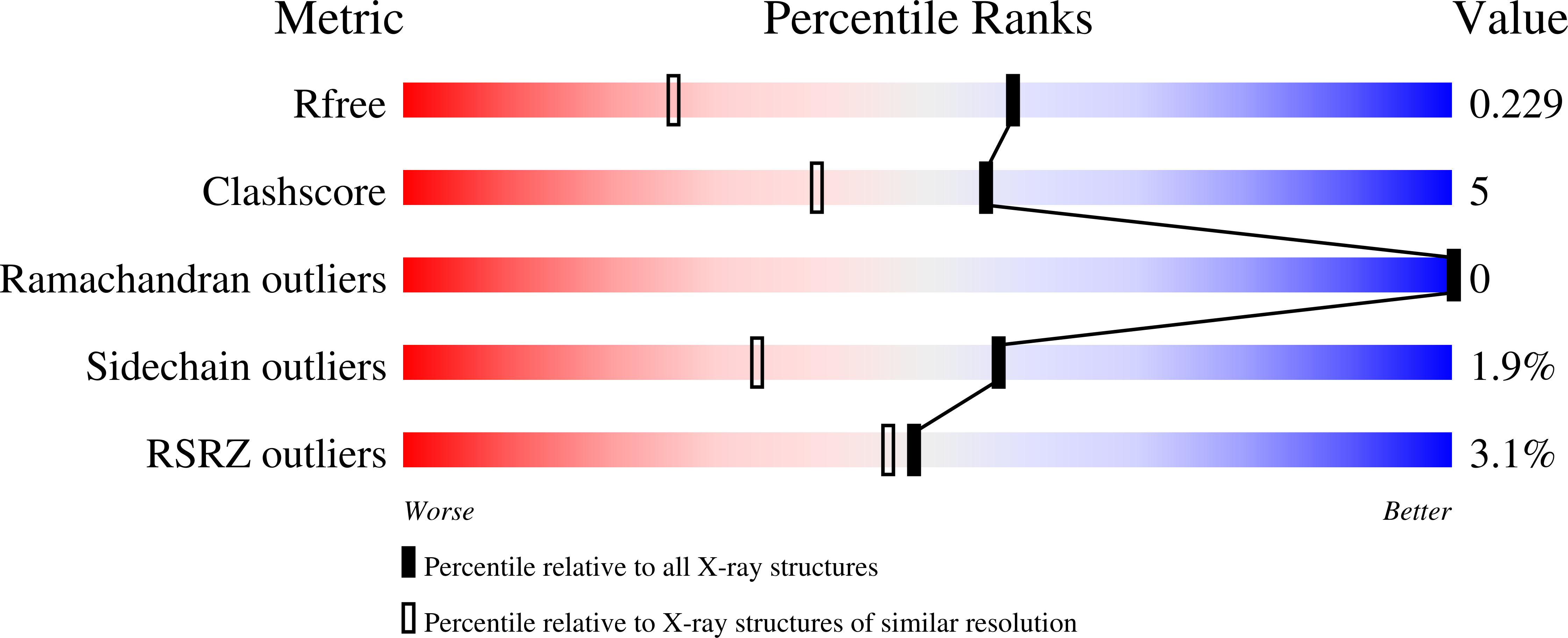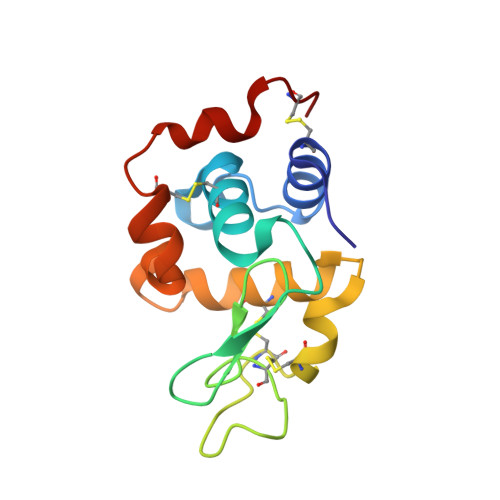The reproducible normality of the crystallographic B-factor.
Ramos, N.G., Sarmanho, G.F., de Sa Ribeiro, F., de Souza, V., Lima, L.M.T.R.(2022) Anal Biochem 645: 114594-114594
- PubMed: 35189095
- DOI: https://doi.org/10.1016/j.ab.2022.114594
- Primary Citation of Related Structures:
7S27, 7S28, 7S29, 7S2A, 7S2B, 7S2C, 7S2D, 7S2E, 7S2F, 7S2G, 7S2Q, 7S2U, 7S2V, 7S2W, 7S30, 7S31, 7S32, 7S33, 7S34, 7S35 - PubMed Abstract:
Reproducibility determines the utility of a measurement. In structural biology the reproducibility permeate areas such as mechanics, data measurement, data analysis and refinement. In order to access the reproducibility of the combined contribution of these sources in uncertainties of protein crystallography we evaluated four groups of parameters from data collection to final structural model. We used lysozyme as a model, with 20 datasets collected at 1.6 Å resolution using two dissimilar x-ray diffraction setups and refined through a single automatic pipeline without arbitrary interpretation. Besides statistical differences in some structural parameters, the reproducibility of the final refined models allowed the determination of positional uncertainty, in good agreement with the Luzzati coordinate error. While the raw B-factor was found non-reproducible, an empirical scaling/normalization resulted in reproducible B-factors. The validity of this empirical scaling was corroborated by the reproducibility of normalized B-factors of independently solved datasets from proteins (insulin and myoglobin) from varying space groups available from structural database. The reproducibility of normalized B-factor may reposition this displacement parameter in the analysis of chemical (ligands, pH) and physical (pressure, temperature, space groups) variables.
Organizational Affiliation:
National Institute for Metrology, Quality and Technology (INMETRO), INMETRO, Duque de Caxias, RJ, 25250-020, Brazil. Electronic address: nataliag.ramos@gmail.com.















